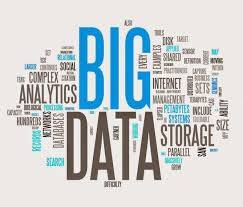 We live in historic times. With every new technology trend that connects us to the Cloud our world falls deeper into what is coined by many as the “Fourth Industrial Revolution.” Steam power ignited the first industrial revolution in the 18th century, followed by electricity in the 19th century and electronics coupled with IT automation in the 20th century. As we chug along in the 21st century during the dawn of the most recent Industrial Revolution, the exponential growth in computer processing power and the reality of all things internet is undeniable.
We live in historic times. With every new technology trend that connects us to the Cloud our world falls deeper into what is coined by many as the “Fourth Industrial Revolution.” Steam power ignited the first industrial revolution in the 18th century, followed by electricity in the 19th century and electronics coupled with IT automation in the 20th century. As we chug along in the 21st century during the dawn of the most recent Industrial Revolution, the exponential growth in computer processing power and the reality of all things internet is undeniable.
Industrial Revolution 4.0 is shaping the world in which the exchange of information between embedded technologies infiltrating all spheres of the economy has generated more data than we could ever imagine. Hence, there is an imminent shift happening in the paradigm of just “knowing” and letting us humans make all the decisions to a more intelligent use of the increasing data sets available at our fingertips. As data gets captured outside the traditional computer (i.e. PCs, servers, laptops, etc.) and into the manufactured products of industry, businesses are moving from a product-centric economy to a service-centric economy. The embedded technologies within products now can deliver vital information that alerts both consumers and providers of impending problems that need to be fixed as well as deliver product features that enhance the customer experience. As an example, you can just look at today’s well-equipped modern vehicle that delivers a whole slew of embedded technologies from parking assist options and Bluetooth enabled capabilities to GPS and infra-red motion detection. Today our cars are rolling computers, our appliances are increasingly smarter and even our doorbells can deliver intelligence. The Analyst community calls this phenomenon the “Internet of Things (IoT).” In fact, Gartner predicts there will be nearly 26 billion devices on the Internet of Things by 2020.
So what does this all mean to us in the Professional Services Automation (PSA) world? For us it means, Big Data will eventually rule. With more and more devices and embedded technologies talking to each other, this means a more sophisticated workforce enhanced by smart technologies that will deliver a proactive service-centric approach to the consumers they serve and the businesses that support them. Products are evolving and automatically delivering useful information to their end users and as a result this will ultimately raise the bar with customer expectations. In response, leading service organizations will do more than just automate their processes. They will seek intelligent solutions that will in many cases respond to customer needs with limited human intervention.
To remain competitive, professional services organizations will look to move beyond PSA and adopt a “Professional Services Intelligence (PSI)” approach to their business. The idea would be to provide customers with strategic services that proactively respond to their needs by leveraging the internet as the method of delivery of mission critical information to service providers. The old model of streamlining “reactive” servicing of customers won’t be enough. The PSI paradigm will leverage Big Data that will feed intelligent platforms to anticipate potential bottlenecks and/or benefits of the products consumed. These PSI analytics platforms will deliver real-time solutions to service providers delivering descriptive, diagnostic, predictive and prescriptive capabilities to their customers. In addition, as these data sets continue to grow and services organizations get better in optimizing this approach, the importance of service organizations will be pushed to the forefront. Consequently, with increased mindshare comes increased responsibility and service organizations will need to step up, seize this opportunity and lead the businesses they serve in this new service economy.
About the Author: Neil Stolovitsky has over 15 years of IT experience with end-user, consulting, and vendor organizations, along with extensive expertise in business development, software selection, and channel strategies. He has published numerous white papers and articles covering Professional Services Automation, Enterprise Resource Planning (ERP) for service industries, Project Portfolio Management, IT Governance, and New Product Development to a global audience. Neil currently holds the position of Senior Solution Consultant with Upland Software.

